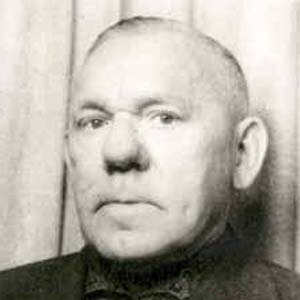German poet and trade unionist, was born on April 10, 1896 in Wickrath, Germany and died on September 2, 1971 in Moers, Germany.
Esser grew up in an orphanage and worked after his schooling initially as a weaver. During the First World War, he was drafted as an infantryman. Then Esser worked as a miner in the Lower Rhine lignite area, became a union member and joined the KPD. Inspired by the early worker poetry, he wrote poems and stories from the world of work.
In 1933 he was taken as a communist and trade unionist in “protective custody” and charged with treason. In the concentration camp Börgermoor Esser wrote together with Wolfgang Langhoff the song of the Moorsoldaten as a resistance song against persecution and suppression. In the following years he lived in great economic need with his family because of repeated arrests and the impossibility to find a job. Presumably to avoid further persecution, Esser published some patriotic poems in National Socialist publications during this period.
After the Second World War, he resumed his trade union activity, but broke away from communism in the time of Stalinism. Esser retired in 1960 and continued to publish poetry in newspapers. He died in 1971 in Moers. His grave (and a plaque) are located in the cemetery Trompet in Duisburg-Rheinhausen.


10 thoughts on “Kaminos”
Was Nicholas related to Alexander Saslavsky who married Celeste Izolee Todd?
Anyone have a contact email for Yair Klinger or link to score for Ha-Bayta?
wish to have homeland concert video played on the big screen throughout North America.
can organize here in Santa Barbara California.
contacts for this needed and any ideas or suggestions welcomed.
Nat farber is my great grandpa 😊
Are there any movies or photos of max kletter? His wife’s sister was my stepmother, so I’m interested in seeing them and sharing them with his wife’s daughter.
The article says Sheb recorded his last song just 4 days before he died, but does not tell us the name of it. I be curious what it was. I’d like to hear it.
Would anyone happen to know where I can find a copy of the sheet music for a Gil Aldema Choral (SATB) arrangement for Naomi Shemer’s “Sheleg Al Iri”. (Snow on my Village)?
Joseph Smith
Kol Ram Community Choir, NYC
שלום שמעון!
לא שכחתי אותך. עזבתי את ישראל בפברואר 1998 כדי להביא את בני האוטיסט לקבל את העזרה המקצועית שלא הייתה קיימת אז בישראל. זה סיפור מאוד עצוב וטרגי, אבל אני הייתי היחיד עם ביצים שהביא אותו והייתי הורה יחיד בשבילו במשך חמישה חודשים. הוא היה אז בן 9. כעת הוא בן 36 ומתפקד באופן עצמאי. נתתי לו הזדמנות לעתיד נורמלי. בטח, אבות כולם חרא, אומרים הפמינציות, אבל כולם צריכים לעבוד כמטרות במטווחי רובה!
משה קונג
(Maurice King)
Thank you for this wonderful remembrance of Herman Zalis. My late father, Henry Wahrman, was one of his students. Note the correct spelling of his name for future reference. Thank you again for sharing this.
Tirza Wahrman (Mitlak)
amazing zchuso yagein aleinu, he wrote the famous niggun Lefichuch that is sung in almost every Israeli Yeshiva